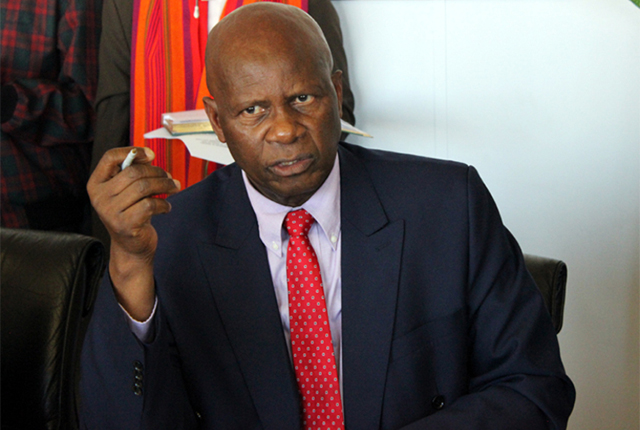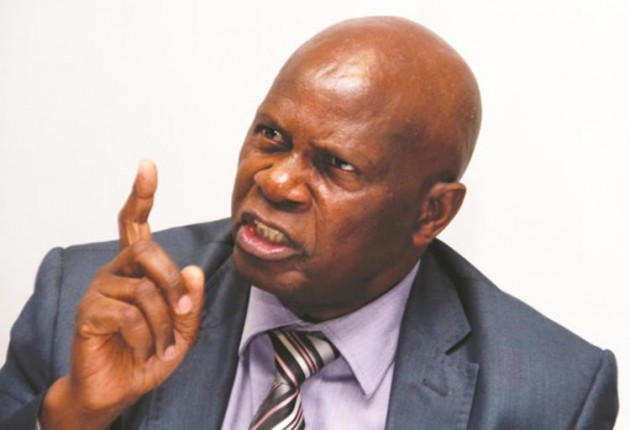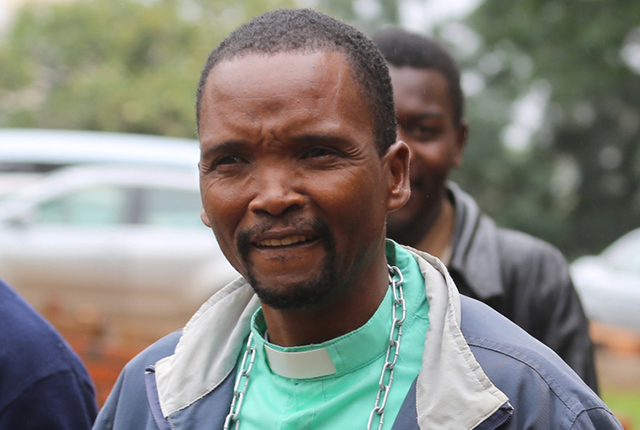Economic growth revised to 3,7pc

Tendai Mugabe Senior Reporter—
Government has revised this year’s economic growth rate from 1,7 percent to 3,7 percent amid prospects of a bumper harvest this farming season and positive results already trickling in from sweeping economic policies being implemented across all sectors of the economy. Among other things, Government is addressing issues to do with ease of doing business, policy clarity and engagement of the international community to put the country on a robust economic revival path.
Addressing military officers attending Joint Command and Staff Course Number 30 at the Zimbabwe Staff College in Harare yesterday, Finance and Economic Development Minister Patrick Chinamasa said this good harvest, anchored on Command Agriculture expected this year, would spur economic growth.
“We have never spent as much money on agriculture as we have done this season,” said Minister Chinamasa.
“I am pleased that with the blessings of the Almighty, who gave us abundant rains, we are anticipating growth in agriculture. In fact, we are revising growth in the agricultural sector which in turn we are revising the overall growth. I anticipate after the revision, our growth to be around 3,7 percent from 0,7 percent or so that we had anticipated in the 2017 National Budget.
“We are looking at maize, we are anticipating production of around US$3 billion from all sectors — Command (Agriculture), Presidential Inputs Scheme, A2 farmers, A1 farmers, on those who did not subscribe to Command Agriculture, we are expecting grain delivery of 3 million tonnes. This is over and above what we achieved last year of around 1 million tonnes, even less around 750 000 tonnes.
“We are also expecting a bumper crop from cotton. As you may be aware, we put US$40 million free support to cotton farmers and certainly the standing crop is looking like we are going to push our production figures from 30 000 tonnes last year to anything above 150 000 tonnes this season. The picture looks quite good. We are paying a good price in fact, above market rates –US$390 per metric tonne and we are promising we will pay at least a week after delivery. As you know, from the past season, we are not owing anybody. We had good payments to our farmers whether wheat or maize.”
Minister Chinamasa said Command Agriculture, which had registered incredible results in its first year, would now be extended to winter wheat production and efforts were already underway to mobilise resources to that effect.
With regards to the 2017-2018 cropping season, Minister Chinamasa said Government would increase its support for communal farmers to ensure food sufficiency.
“In 2017-2018 farming season, we are extending the Presidential Input Scheme. This season, we supported only vulnerable households – about 800 000,” he said.
“This coming season, we will be supporting 1,7 million households. In other words, every farming household in communal areas will be able to get the Presidential Input Scheme which will mean one bag of ammonium nitrate, one compound (D) and a 10kg bag of seed. So, I am anticipating more active participation in the agricultural sphere. I want to emphasise that we and the private sector are one family and we should work together. Our collective effort is very important for sustainable development.
“I always want to remind Government that our employer is the private sector because they are the people who pay taxes. It is their taxes that help us to sustain Government operations, to provide service delivery, capital formation, to build dams, to support education, to support health. It’s important that private sector and Government work together.”
Turning to the industry which is the engine for economic growth, Minister Chinamasa said that sector had virtually collapsed but far reaching efforts were being made to revive it.
Among other interventions, Minister Chinamasa said Government was making efforts to clear its debt overhang to unlock new lines of credit.
He said the country’s debt stood at US$11, 2 billion both local and external.
On policy issues, Minister Chinamasa said Government introduced Statutory Instrument 64 to protect local industry and to encourage local production.
Further, Minister Chinamasa said: “We also, in order to encourage foreign direct investment, are engaging in an exercise on the cost and ease of doing business and that exercise is being spearheaded by the Office of the President and Cabinet. We want to look at sector by sector at what is constraining foreign and domestic investment in terms of costs, in terms of simplifying bureaucratic procedures. We are examining sector by sector and removing those procedures we think are impeding growth and ease of doing business.
“As a result of these initiatives, we have seen the level of industrial capacity utilisation rising from 34 percent in 2015 to the current around 50 percent depending on the sub sector.”
Minister Chinamasa, however, pointed out that foreign currency shortages were affecting importation of critical raw materials to feed in the local industry. Minister Chinamasa encouraged use of plastic money to alleviate cash shortages.








Comments